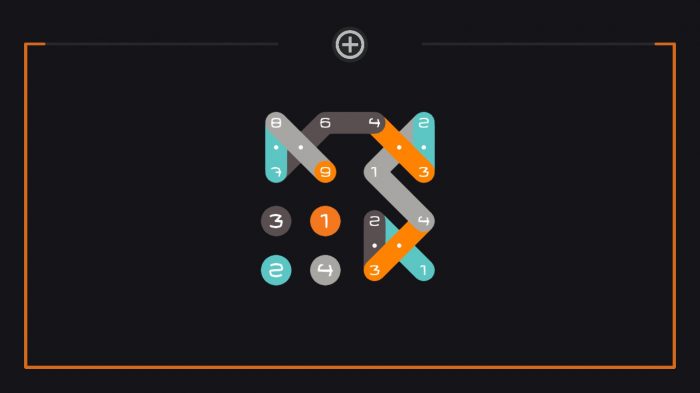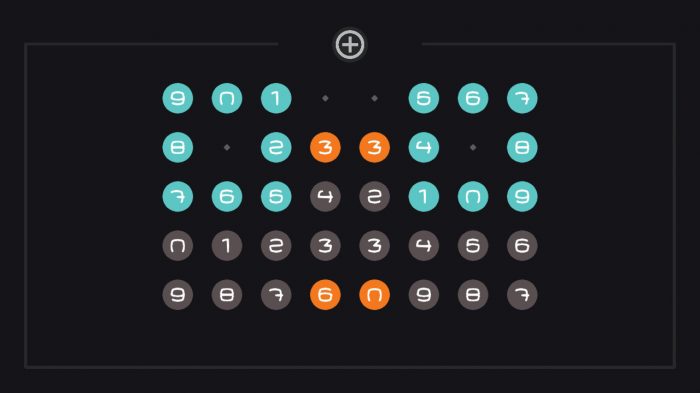It’s not hard to find minimalistic puzzle games on the Nintendo Switch. The newest addition to the ranks is SEN: Seven Eight Nine, a pared-back puzzler whose aim is to offer a relaxing, meditative experience, but unfortunately it’s one that fails to hold up against the platform’s better offerings.
Upon launching SEN for the first time, you’re greeted with a lowkey soundtrack and a minimalistic colour palette. Three orange circles appear with an animated hand inviting you to join them up. Doing so empties the screen and advances you to the next stage, communicating that the aim is to clear each level of dots. Slowly, additional mechanics are introduced: dots of the same colour can be connected in any order, for example, but crossing colour boundaries must involve numbered dots with a difference of +1.

It’s simple enough, although the way the game teaches you some of these mechanics could certainly have been improved. In particular, many of the early levels are too straightforward to allow you to fully explore the restrictions of each new mechanic before getting into the more challenging puzzles. On paper, this may not sound like much of a problem, but if you’re working on a complex puzzle and suddenly stumble upon some new restriction which forces you to re-learn the limits of older rules, it can seriously disrupt the flow that the game is so obviously trying to achieve.

If you can look past this, however, there are moments of value in the gameplay. Although early levels are dully straightforward, later ones combine the mechanics in increasingly complicated ways, and there’s plenty of satisfaction when you finally find the solution to a particularly tricky puzzle. If you ever do get stuck, though, SEN‘s levels are offered in sets with related mechanics along a branching pathway; it’s always possible to go back to another set if you need a change of pace. Oddly, though, the game doesn’t register your progress if you don’t complete all of the levels in a set at once, so be prepared for some repetition if you do take a break from the game.
Indeed, from a quality of life perspective, there are some clear oversights in SEN, and it’s possible that a little too much has been stripped back from the game in its attempt to provide a minimalistic experience. This detracts from the tranquillity that SEN aims for, instead resulting in moments that are annoying, if not quite bad enough to be called frustrating. It should also be noted here that the puzzles are heavily colour-based, which naturally may cause problems for those with colour-blindness.

SEN offers traditional and touchscreen controls, both of which are adequate. Touchscreen is more natural for the gameplay, but it can be awkward to use at times. Specifically, there’s no undo button, so if you change your mind about the path you’re taking in levels with multiple turns, it’s necessary to backtrack along the entire thing before taking your finger off the screen lest you use a turn accidentally. Again, this doesn’t break the game, but the numerous quality-of-life omissions add up over time.
Ultimately, SEN: Seven Eight Nine is a passable game. It does offer some moments of enjoyment in a relaxing atmosphere, and there are some interesting mechanics on offer, but at the end of the day, this one is more likely to result in frustration than the Zen it’s clearly aiming for.
SEN: Seven Eight Nine £8.99
Summary
There is a small amount of enjoyment to be found in SEN: Seven Eight Nine’s more challenging levels. However, the title fails to offer anything particularly novel or groundbreaking, and could also benefit from some quality-of-life improvements.

